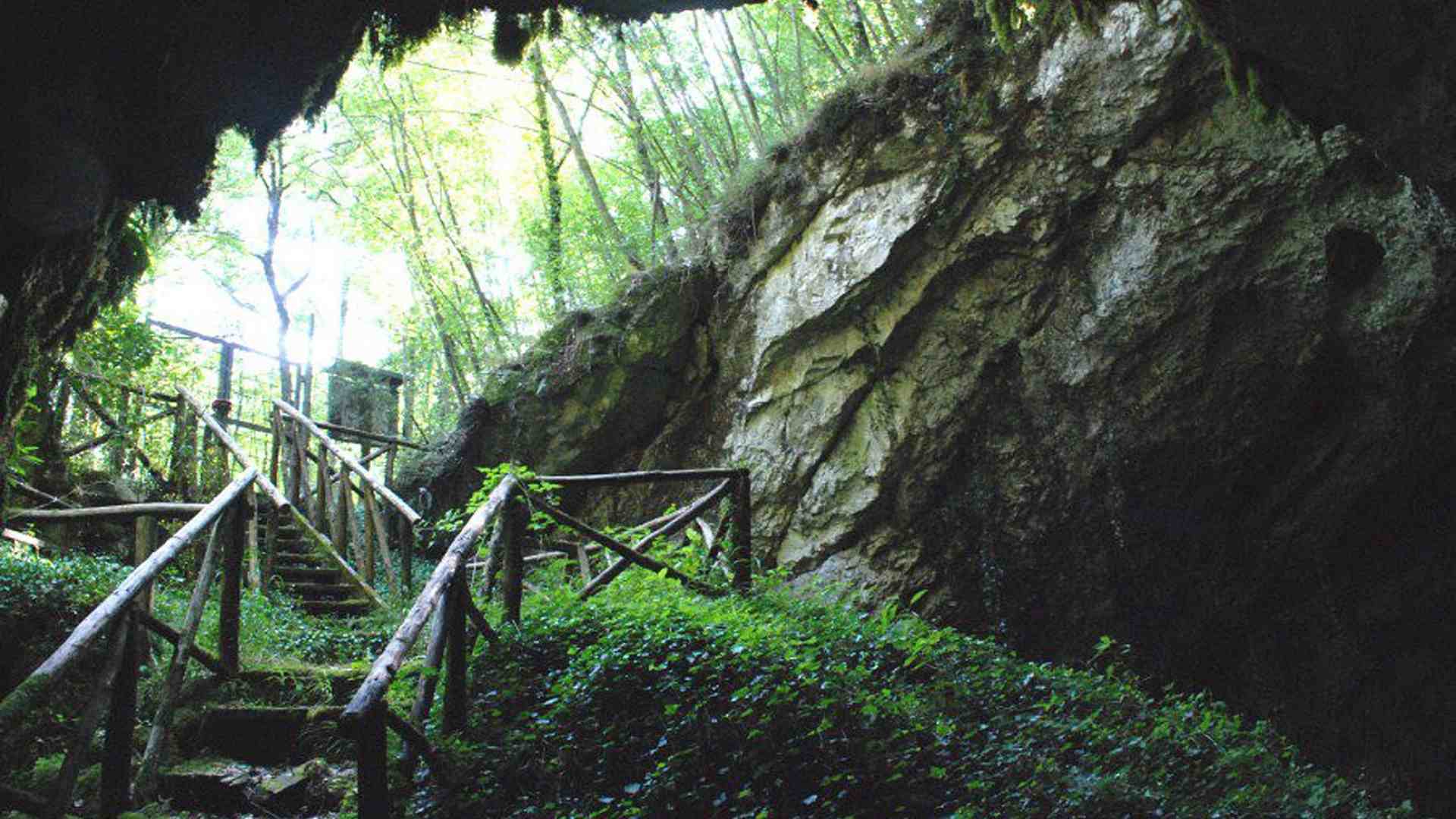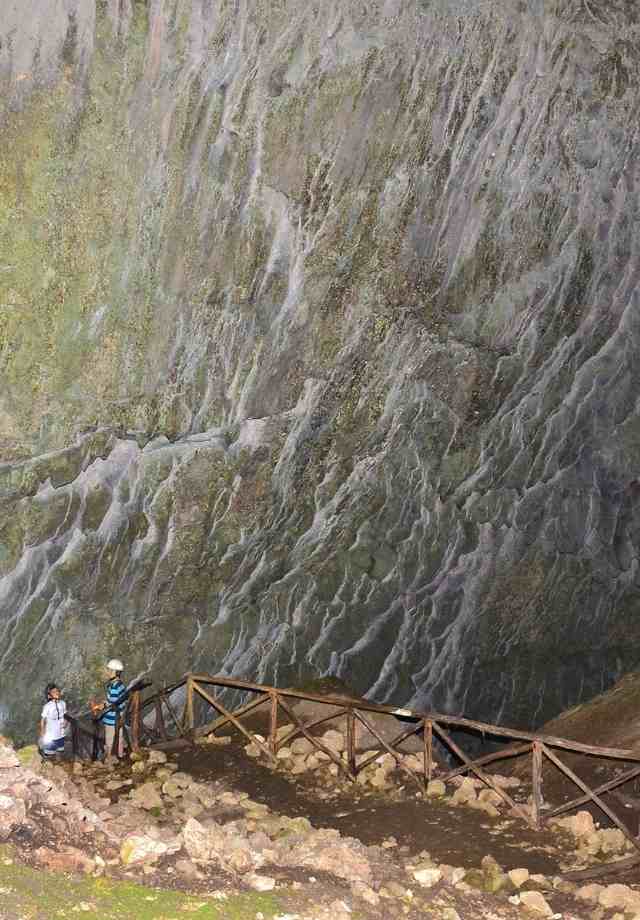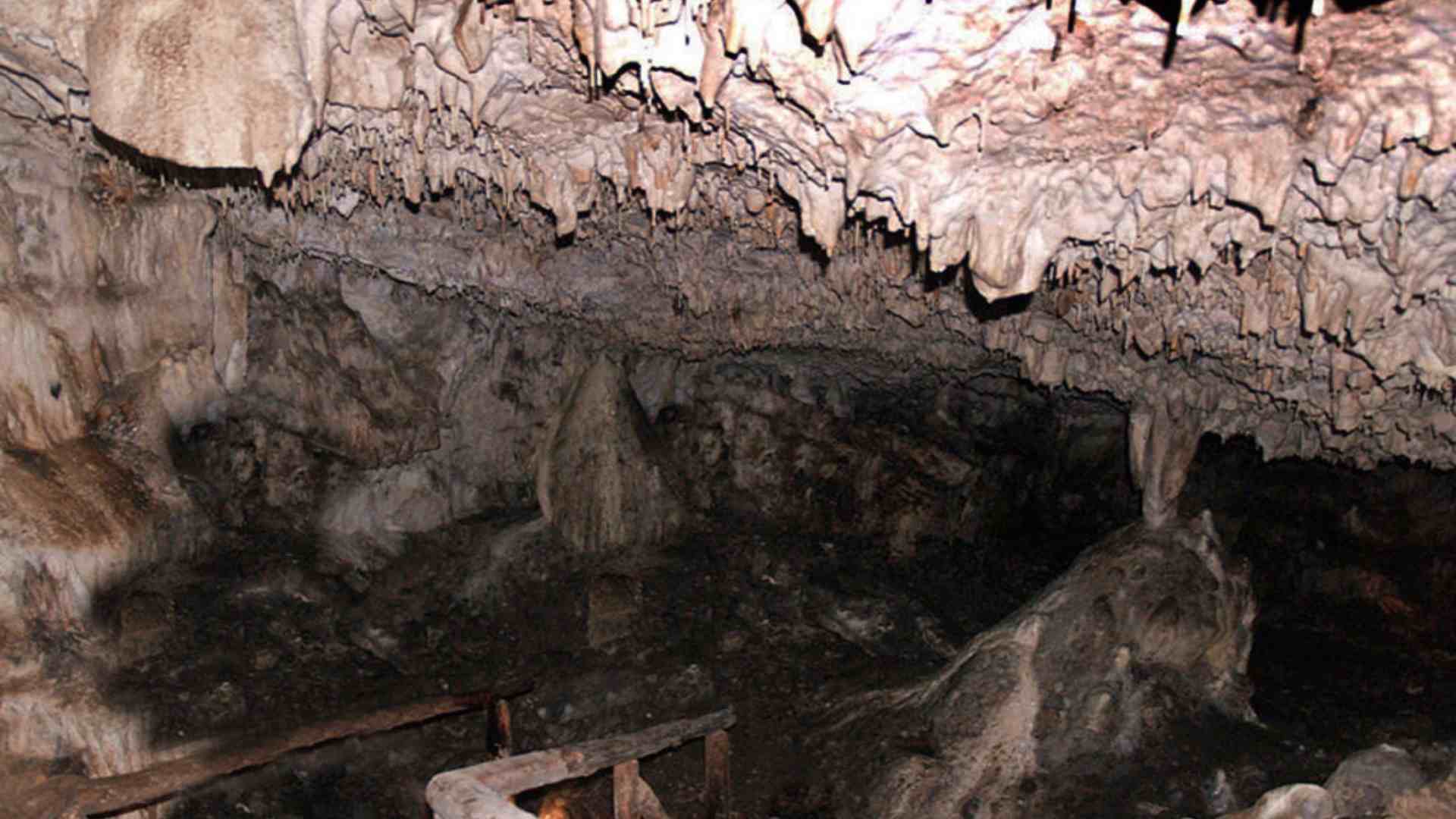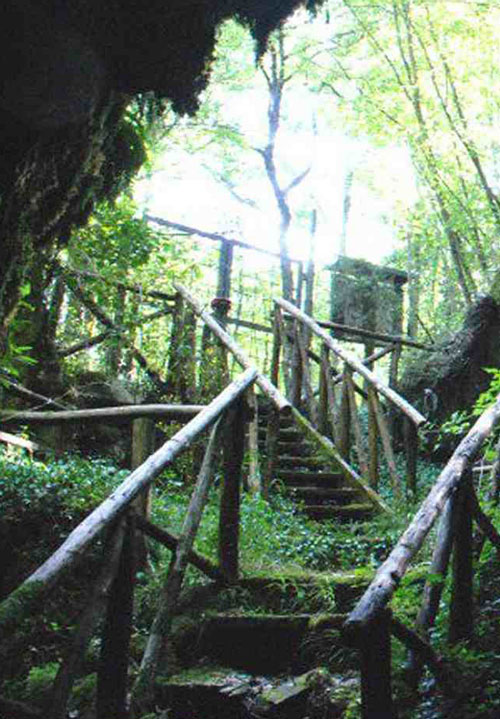
punto di interesse
point of interest


The Grotta Bella, a karst cavity of enormous archaeological and paleontological value, opens at 530 meters. above sea level on the slopes of Mount Aiola a short distance from the charming village of Santa Restituta in Avigliano Umbro.
This natural cave, now closed to the public and accessible only on certain occasions, has been frequented by man since ancient times and for over 6,000 years.

The Grotta Bella, a karst cavity of enormous archaeological and paleontological value, opens at 530 meters. above sea level on the slopes of Mount Aiola a short distance from the charming village of Santa Restituta in Avigliano Umbro.
This natural cave, now closed to the public and accessible only on certain occasions, has been frequented by man since ancient times and for over 6,000 years.

From the archaeological point of view, the cave presents evidence of attendance starting from the Neolithic period (in a chronological context between 5,600 and 5,200 BC) with the environment that became first a tomb then a place of worship on several occasions until the Bronze Age.
Between the sixth century BC and the fifth century AD Grotta Bella played the function of a real sanctuary of reference of the territory: as evidences, offerings in the form of votive bronzes of typical workmanship of the Umbrian populations and then, with the Romanization, anatomical votive terracotta.
In the cave were also found coins, lamps, small vases and an uninteresting amount of tiles that could suggest the construction, inside the cavity, of a cult building.
We do not know much about the cults practiced in the cave, but it is certain that Grotta Bella became an important religious reference of the Umbrian territory.
The sacredness of the place has been influenced also by the intrinsic peculiarities of the site: equipped with a large initial environment in dim light, mysterious and apparently bottomless, with a trickle so intense as to appear prodigious.
Some of the materials found in the cave are preserved today inside the Plant Paleontology Center of the Dunarobba Fossil Forest.

From the archaeological point of view, the cave presents evidence of attendance starting from the Neolithic period (in a chronological context between 5,600 and 5,200 BC) with the environment that became first a tomb then a place of worship on several occasions until the Bronze Age.
Between the sixth century BC and the fifth century AD Grotta Bella played the function of a real sanctuary of reference of the territory: as evidences, offerings in the form of votive bronzes of typical workmanship of the Umbrian populations and then, with the Romanization, anatomical votive terracotta.
In the cave were also found coins, lamps, small vases and an uninteresting amount of tiles that could suggest the construction, inside the cavity, of a cult building.
We do not know much about the cults practiced in the cave, but it is certain that Grotta Bella became an important religious reference of the Umbrian territory.
The sacredness of the place has been influenced also by the intrinsic peculiarities of the site: equipped with a large initial environment in dim light, mysterious and apparently bottomless, with a trickle so intense as to appear prodigious.
Some of the materials found in the cave are preserved today inside the Plant Paleontology Center of the Dunarobba Fossil Forest.

Discover the areas around Grotta Bella:
Reach Santa Restituta
Or discover the points of interest of Avigliano Umbro and its territory:
[Avigliano Umbro and its territory – link a itinerario]
discover all the points of interest of the village
Information, appointments and travel proposals on:
The Progressive Web App is part of the project “Le Terre dei Borghi Verdi”, realized in collaboration and with the contribution of Regione Umbria – Assessorato al Turismo
©2021 Le Terre dei Borghi Verdi
Le Terre dei Borghi Verdi
Welcome in Southern Umbria,
where the slowness becomes value
Information, appointments and travel proposals on:
The Progressive Web App is part of the project “Le Terre dei Borghi Verdi”, realized in collaboration and with the contribution of Regione Umbria – Assessorato al Turismo
©2021 Le Terre dei Borghi Verdi